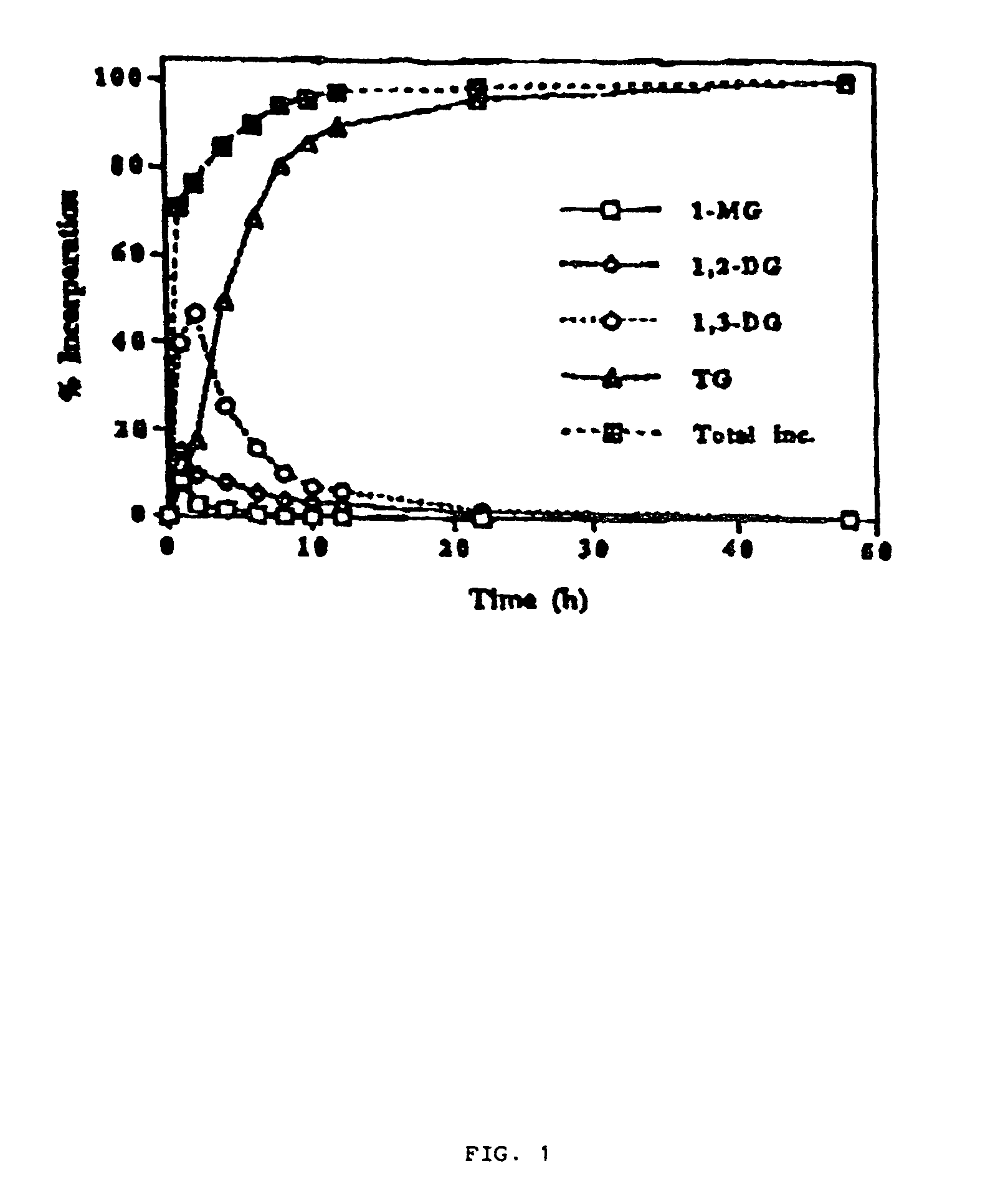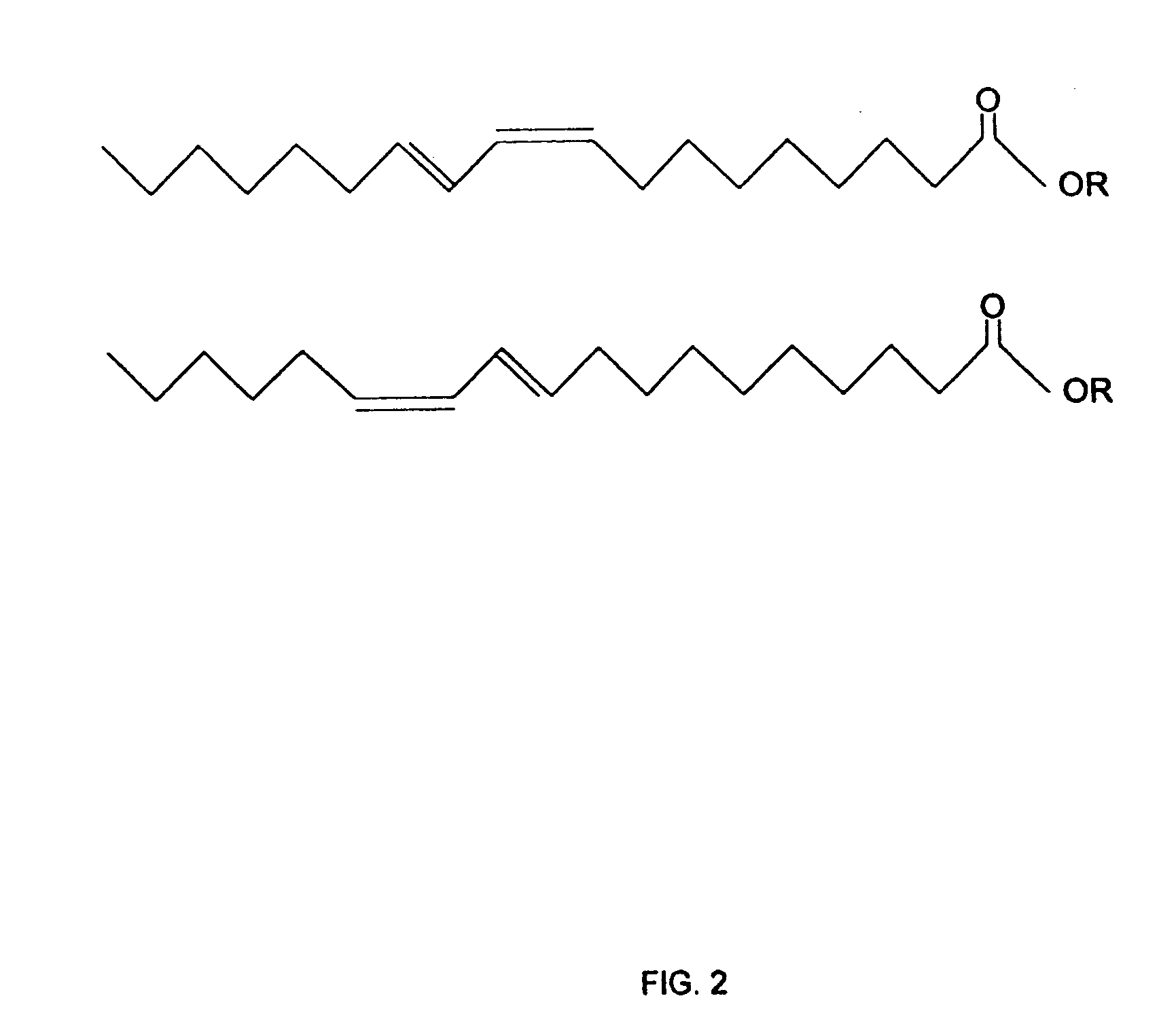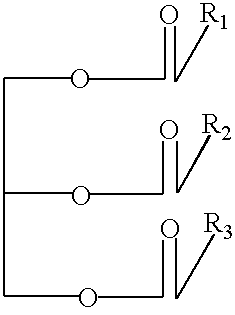Triacylglycerols of enriched CLA content
a technology of triacylglyceride and cla content, applied in the field of new drugs, can solve the problems of increasing fat miscibility of diglyceride>monoglyceride, and achieve the effects of increasing cla acylation, stable oxidation, and enhancing product shelf-life and storage potential
- Summary
- Abstract
- Description
- Claims
- Application Information
AI Technical Summary
Benefits of technology
Problems solved by technology
Method used
Image
Examples
example 1
[0039]General. H nuclear magnetic resonance spectra were recorded on a Bruker AC 250 NMR spectrometer in deuterated chloroform as a solvent. HPLC separations were carried out by a PrepLC™ System 500A instrument from Waters using the PrepPak® 500 / Silica Cartridge column from Millipore, eluting with 10% diethyl ether in petroleum ether. Analytical GLC was conducted on a Perkin-Elmer 8140 Gas Chromatograph according to a previously described procedure, as described in Haraldsson, et al., Acta Chem Scanned 45: 723 (1991).
[0040]The immobilized Candida antarctica lipase was provided by Novo Nordisk in Denmark as Novozyme™. It was used directly as provided in the esterification experiments. Analytical grade diethyl ether purchased from Merck was used without any purification, but synthetic grade n-hexane also from Merck was freshly distilled prior to use in extractions and HPLC chromatography. Glycerol (99%) was purchased from Sigma and Aldrich Chemical Company and used without further pur...
example 2
The Preparation of Triacylglycerols of CLA by Direct Esterification.
[0041]Immobilized Candida antarctica lipase (1.25 g) was added to a mixture of glycerol (1.22 g. 13.3 mmol) and CLA as free fatty acid (M.wt.280.3 g / mol; 11.6 g, 41.5 mmol). The mixture was gently stirred on a magnetic stirrer hot plate at 65° C. under continuous vacuum of 0.01-0.5 Torr. The volatile water produced during the progress of the reaction was continuously condensed into liquid nitrogen cooled traps. After 48 h the reaction was discontinued, n-hexane added and the enzyme separated off by filtration. The organic phase was treated with an alkaline aqueous solution of sodium carbonate to remove excessive free fatty acids (when required). The organic solvent (after drying over anhydrous magnesium sulfate when appropriate) was removed in vacuo on a rotary evaporator followed by high-vacuum treatment to afford the virtually pure product as a slightly yellowish oil (10.9 g; average M.wt.878.6 g / mol; 93% yield). ...
PUM
| Property | Measurement | Unit |
|---|---|---|
| temperature | aaaaa | aaaaa |
| temperature | aaaaa | aaaaa |
| structure | aaaaa | aaaaa |
Abstract
Description
Claims
Application Information
 Login to View More
Login to View More - R&D
- Intellectual Property
- Life Sciences
- Materials
- Tech Scout
- Unparalleled Data Quality
- Higher Quality Content
- 60% Fewer Hallucinations
Browse by: Latest US Patents, China's latest patents, Technical Efficacy Thesaurus, Application Domain, Technology Topic, Popular Technical Reports.
© 2025 PatSnap. All rights reserved.Legal|Privacy policy|Modern Slavery Act Transparency Statement|Sitemap|About US| Contact US: help@patsnap.com



